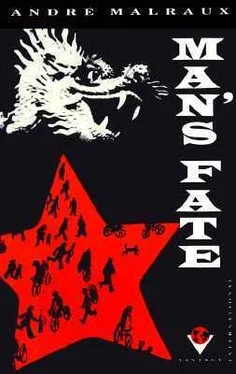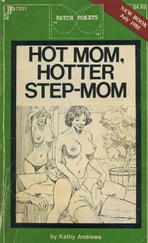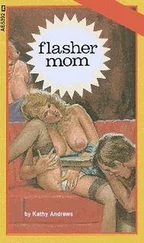“Undoubtedly he loves his son less than himself,” said Kyo. “And if he does not try to crush us he is lost. If he does not stop peasant activity his own officers will leave him. So I’m afraid he’ll abandon the boy, after obtaining a few promises from the European consuls or some other such farce. And the whole petty bourgeoisie which you want to rally, Vologin, will follow him the day he disarms us: it will be on the side of force. I know them.”
140
“Remains to be proved. And there isn’t only Shanghai.”
“You say you’re dying of starvation. Once Shanghai has been lost, where will you get provisions? Feng Yu Hsiang separates you from Mongolia, and he will betray you if we are crushed. Therefore, nothing by the Yangtee, nothing from Russia. Do you think the peasants to whom you’ve promised the program of the Kuomintang (rw: nty-five per cent reduction in farm-rents, no joking- Oh, but really, no joking!) will die of hunger in order to feed the Red army? You’ll put yourself in the power of the Kuomintang even more completely than you are now. To undertake to fight against Chiang now, with real revolutionary slogans, with the backing of the peasants and the Shanghai proletariat, is risky but not impossible: the First Division is almost entirely Communist, from the general down, and will fight with us. And you say we’ve kept half the arms. Not to try is simply to wait placidly to have our throats cut.”
“The Kuomintang is there. We haven’t made it. It’s there. And stronger than we are, for the time being. We can destroy it from below by introducing into it all the Communist elements we have at our disposal. An immense majority of its members are extremists.”
“You know as well as I do that numbers are nothing in a democracy against the ruling apparatus.”
“We are demonstrating that the Kuomintang can be used by using it. Not by argument. For two years we have used it unceasingly. Every month, every day.”
“As long as you have accepted its aims; not once when it was a question of its accepting yours. You have led it to accept gifts which it was dying to get: officers, volunteers, money, propaganda. The soldiers’ soviets, the peasant unions-that’s another matter.”
“What about the exclusion of the anti-Communist elements?”
“Chiang Kai-shek didn’t yet have Shanghai in his power."
“Before a month is up we’ll have him outlawed by the Central Committee of the Kuomintang.”
“After he has crushed us. What difference can it make to those generals of the Central Committee whether the Communist militants are killed or not? They’ll be just that much ahead! Don’t you think-really-that the obsession with economic fatality is preventing the Chinese Communist Party, and perhaps Moscow, from seeing the elementary necessity which is under our very noses?”
“That is opportunism.”
“Very well! According to you Lenin shouldn’t have used the parceling of lands as a slogan (for that matter it was featured much more prominently in the program of the socialist-revolutionaries, who didn’t have the remotest idea of how to apply it, than in the prograi of the bolsheviks). The parceling of lands was the establishment of petty property; therefore he should have advocated, not parceling, but immediate collectivization — the sovkhozes. Since he was successful you can see that it was a question of tactics. For us also it’s only a question of tactics! You’re losing control of the masses. ”
“Do you imagine Lenin kept it from February to October?”
“He lost it at moments. But he was always with them, moving in the same direction. As for you, your slogans go against the current. It’s not a matter of a mere sidestep, but of directions which will become more and more divergent. To act on the masses as you expect to do, you would have to be in power. That doesn’t happen to be the case.”
“.Al this is beside the point,” said Ch’en.
“You won’t stop the activity of the peasants,” Kyo answered. “At the present moment we Communists are issuing to the masses orders which they can consider only as betrayals. Do you think they will understand your waiting slogans?”
“Even if I were a coolie in the Shanghai port I would think that obedience to the Party is the only logical at- titude-in short-of a militant Communist. And that all the arms must be given up.”
Ch’en got up:
“It’s not through obedience that men go out of their way to get killed-nor through obedience that they ^il. Except cowards.”
Vologin shrugged his shoulders.
“We musm’t consider assassination-after all-as the chief path to political truth.”
Ch’en was leaving.
“At the first meeting of the Central Committee I shall propose the immediate parceling of lands,” said Kyo, holding out his hand to Vologin, “the cancellation of credits.”
“The Committee won’t vote them,” answered Volo- gin, smiling for the first time.
Ch’en, a squat shadow on the sidewalk, was waiting. Kyo joined him after having obtained the address of his friend Possoz: he was in charge of the harbor commission.
“Listen. ” said Ch’en.
The vibration of the printing-presses, transmitted by the ground, controlled and regular like that of a ship’s engine, went right through them: in the sleeping city the delegation building was awake with all its lighted windows, across which black figures moved back and forth. They walked, their two similar shadows before them: the same figures, the same effect of their sweater- necks. The straw-huts glimpsed through the perspective of the streets, with their purgatory silhouettes, disappeared in the depth of the calm and almost solemn night, in the smell of fish and burnt grease; Kyo could not free himself from that reverberation of machines transmitted by the soil to his muscles-as if those machines for manufacturing truth were encountering, within himself, Vo- login’s hesitations and affirmations. During his journey up the river he had constantly felt how poorly informed he really was, how difficult it was for him to get a solid basis for his activity if he no longer consented purely and simply to obey the instructions of the International. But the International was wrong. It was ao longer possible to gain time. The Communist propaganda had reached the masses like a flood, because it was what they wanted, because it was their o-wn. However cautious Moscow might be, this propaganda could no longer be stopped; Chiang knew it and was henceforth committed to crushing the Communists. There lay the only certainty. Perhaps the Revolution could have been conducted in some other way; but it was too late. The Communist peasants would take over the lands, the Communist workers would demand a different labor system, the Communist soldiers would no longer fight unless they knew why they were fighting-whether Moscow wanted it or not.
Moscow and the enemy capitals of the West could organize their opposing passions over there in the night and attempt to mold them into a world. The Revolution, so long in parturition, had reached the moment of its delivery: now it would have to give birth or die. At the same time that the fellowship of the night brought Ch’en closer to him, Kyo was seized by a feeling of dependence, the anguish of being nothing more than a man, than himself; there came back to him the memory of Chinese Mohammedans he had seen, on nights just like this, prostrate on the plains covered with sun-scorched lavender, howling those songs that for thousands of years have torn the man who suffers and who knows he is to die. ^\Vhy had he come to Hankow? To inform the International of the situation in Shanghai. The International was as determined as he had become. What he had heard, much more distinctly than the arguments of Vologin, was the silence of the factories, the distress of the dying city, bedecked with revolutionary glory, but dying none the less. They might as well bequeath this cadaver to the next insurrectional wave, instead of letting it dissolve in crafty schemes. No doubt they were all condemned: the essential was that it should not be in vain. It was certain that Ch’en also felt bound to him by a prisoner’s friendship:
Читать дальше











